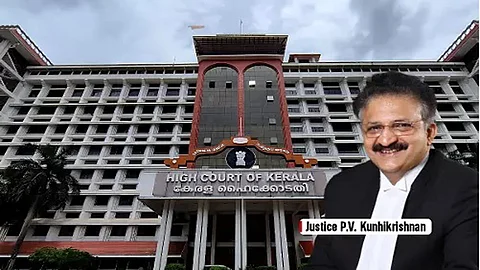

Kochi | The Kerala High Court on Friday declared that a debt created by a cash transaction of above Rs 20,000 in violation of the Income Tax Act is not a "legally enforceable debt" unless there is a valid explanation for the same.
Justice P V Kunhikrishnan made the declaration while allowing a plea for setting aside the conviction and sentence of a man accused in a cheque dishonor case.
The accused was sentenced to one year and imposed with a fine of Rs 9 lakh by a sessions court for the offence of dishonour of cheque due to insufficiency of funds in the account under section 138 of Negotiable Instruments (NI) Act.
In his appeal in the High Court against the sessions court decision, the accused claimed that as the amount of Rs 9 lakh given to him by the complainant was in cash, it was an illegal transaction according to the Income Tax laws.
"Therefore, a debt created by an illegal transaction cannot be treated as a legally enforceable debt," the accused had claimed.
Agreeing with the accused's contention, Justice Kunhikrishnan said that if a criminal court "indirectly legalises such illegal transactions in violation of the IT Act" by treating them as a legally enforceable debt, it will be against the aim of the country to discourage cash transactions above Rs 20,000.
The High Court said that discouraging cash transactions above Rs 20,000 was also "a part of the 'digital India' dream of our country, which is propounded by our Prime Minister to save our economy and to curb a parallel economy in our country".
"If the debt arises through an illegal transaction, that debt cannot be treated as a legally enforceable debt. If the court regularises such transactions, that will encourage illegal transactions by the citizens. Even black money will be converted into white money through the criminal courts," the High Court said.
It further said that in such cases the accused should challenge such transactions in evidence and has to rebut the presumption under section 139 of the NI Act that "the holder of a cheque received it for the discharge of a debt or other liability".
In the instant case, the accused had rebutted the presumption by claiming that the complainant does not have the source to loan out Rs 9 lakh and therefore, the debt alleged to be due to him cannot be treated as a legally enforceable one, the HC said.
It allowed the accused's revision petition and acquitted him by setting aside his conviction and sentence by the lower court.
The High Court said if anybody pays an amount in excess of Rs 20,000 to another person by cash in violation of the IT Act and thereafter receives a cheque for that debt, he should take responsibility to get back the amount, unless there is a valid explanation for such cash transactions.
"If there is no valid explanation in tune with provisions of the IT Act, the doors of the criminal court will be closed for such illegal transactions," the HC said.
It also made it clear that its findings would be prospective in nature.
